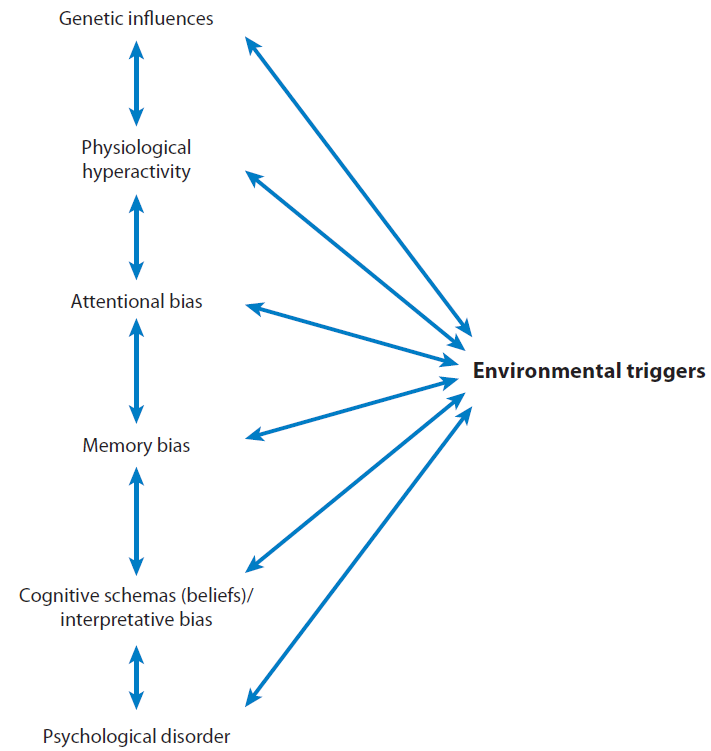
A 19-year-old college junior, Louis, learned that his girlfriend had committed suicide…
One year after… Louis… feels “on-edge” and “down” most of the time… stopped playing sports… no longer spends much time with his friends who knew his deceased girlfriend… feels tired all the time… sleeps 10 to 12 hours a day… has trouble focusing in school… “constantly snaps” when he’s around people… frequently has upsetting dreams… drinks six to eight alcoholic drinks each night to fall asleep.
… when Louis was 7… his younger sister was killed… he was supposed to be in the same car… it took him a long time to deal with her death.
Louis… feels the worst in the evening… alone… “I’m never going to be happy again,” “There is no point getting close to people,” and “I should have known she was going to kill herself. ”
The clinician noted… biased expectancies…. (… “I’m never going to be happy again”), overgeneralization (… “There is no point getting close to people”), and emotional reasoning (… “I should have known she was going to kill herself”)…
Louis and the clinician collaboratively identified three main goals:
(a) identify, examine, and modify inaccurate or unhelpful thoughts Louis has about his future and others;
(b) examine his thoughts about his perceived role in his girlfriend’s suicide; and
(c) increase his level of social interaction.
With practice, Louis was able to independently modify his thoughts so that they were more accurate and helpful.
The clinician dedicated a significant amount of time to helping Louis examine the evidence for his thoughts… that he should have known his girlfriend was suicidal… and adopt a… thought that his girlfriend’s desire to commit suicide was something he could not have predicted.
Louis agreed to slowly increase his social activity… evaluate his belief that it would be too unbearable to see his friends who had known his girlfriend… Louis reported feeling grateful that he had reconnected with some of his old friends.
Louis… independently designed a behavioral experiment to test his thought that it will take him “forever to fall asleep without drinking.”[1]
- Beck, Aaron T., and Emily AP Haigh. “Advances in cognitive theory and therapy: The generic cognitive model.” Annual review of clinical psychology 10 (2014): 1-24.